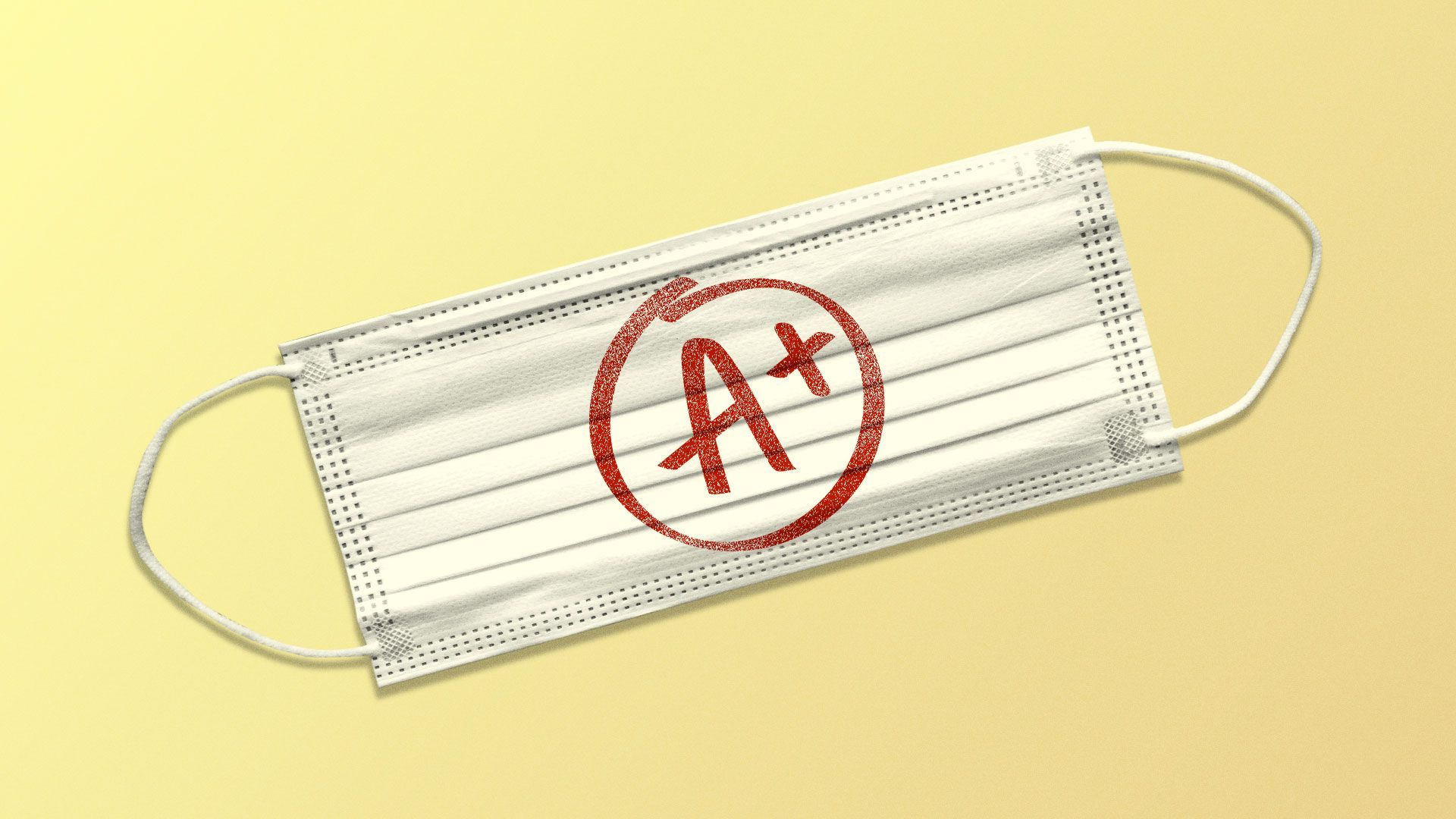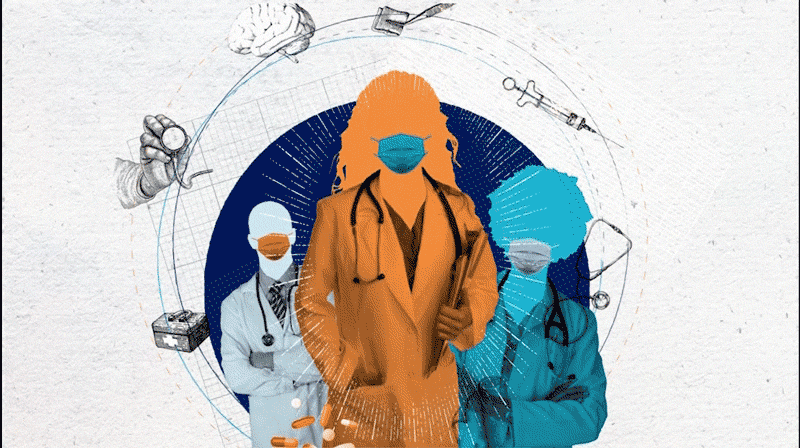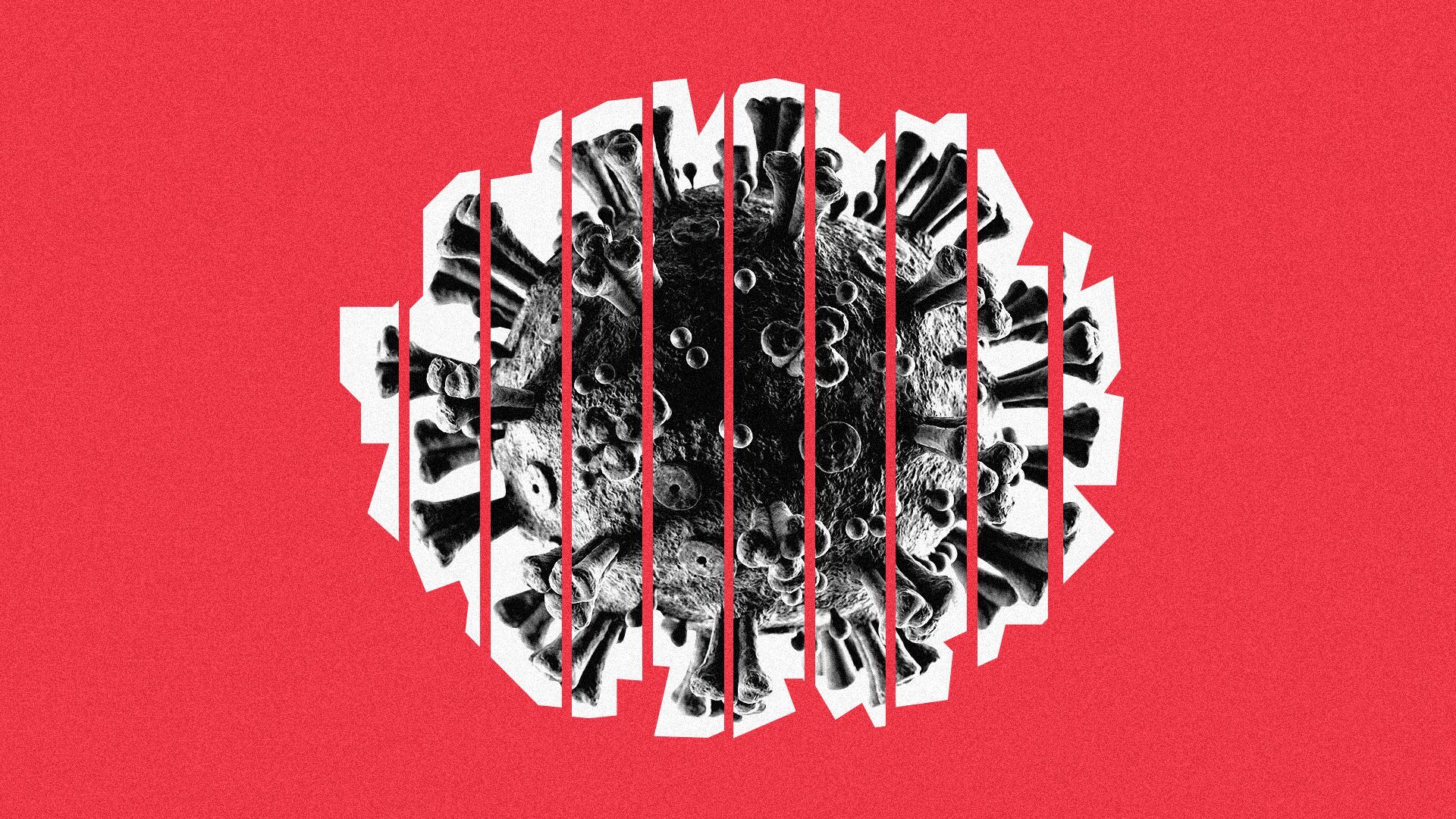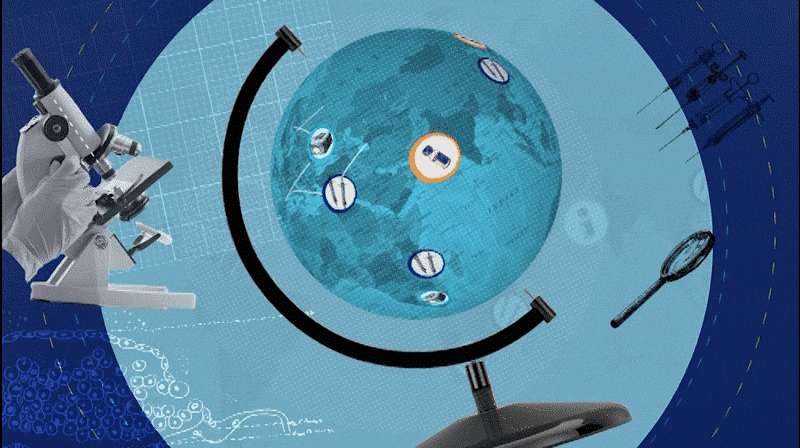| | | | | | | Presented By PhRMA | | | | Vitals | | By Caitlin Owens ·Nov 30, 2020 | | Good morning. I hope you were able to step away from the chaos of the world and enjoy the long weekend. I was reminded that sometimes gratitude is a practice, not a feeling, and that finding small things to be thankful for can make a huge difference. - I also learned to cook a few dishes that I will not make again for at least a full year, but likely much longer.
- Also, thank you to everyone who made sacrifices this year for the sake of keeping others healthy. I know that it was a lonely weekend for a lot of us. But we made it, and next year will be better!
Back to the real world: Today's word count is 913, or about a 4-minute read. | | | | | | 1 big thing: Young people's next big COVID-19 test |  | | | Illustration: Eniola Odetunde/Axios | | | | Young, healthy people will be at the back of the line for coronavirus vaccines, and they'll have to maintain their sense of urgency as they wait their turn — otherwise, vaccinations won't be as effective in bringing the pandemic to a close, Axios' Marisa Fernandez reports. The big picture: "It's great young people are anticipating the vaccine," said Jewel Mullen, associate dean for health equity at the University of Texas. But the prospect of that enthusiasm waning is "a cause for concern," she said. Where it stands: Right now, young Americans are eager to get vaccinated. - 62% of adults 18-44 years old say they would be willing to get a coronavirus vaccine, Gallup polling shows.
- 75% of students nationwide said they would probably or definitely take an FDA-approved vaccine, according to new polling from Generation Lab.
Yes, but: The most vulnerable people — frontline workers, older Americans and people with underlying health problems that can cause severe coronavirus illness — will be the first priority as a limited number of vaccine doses become available. - The lowest-risk Americans — generally, people who are young and healthy — may not get access to the vaccine until 2022, the World Health Organization's chief scientist recently predicted.
- "As more people get vaccinated, young people may think, 'Oh, other people got it, so I don't have to worry about it so much,'" Mullen said.
How it works: The WHO has estimated that roughly 60%-70% of the U.S. population would need to get vaccinated in order to achieve herd immunity, the key to stopping the virus from spreading widely. - That's only achievable if a lot of low-risk people get vaccinated.
|     | | | | | | 2. Vaccinating rural America won't be easy | | The logistical challenges of distributing and administrating a coronavirus vaccine will meet deep skepticism of it in many parts of rural America, the Washington Post reports. Why it matters: Rural areas are currently being ravaged by the virus, and their residents tend to be older and in worse health — making them more vulnerable to the virus and thus a vaccination priority. The big picture: Rural communities across the country also tend to have struggling health care systems, further complicating vaccination efforts. - "Responsibility for their inoculation....will fall to a public health system maimed by budget cuts and riven by racial and other inequities. The day-to-day delivery of shots, without reinforcements, will play out at understaffed clinics, overwhelmed pharmacies and beleaguered long-term care facilities," the WaPo writes.
- Some rural areas may struggle to handle shots that require ultracold storage, and asking residents to visit a drive-up vaccination site may also be unrealistic for those without a car.
And while some populations, especially Black ones, don't trust the medical community, others — like some of President Trump's supporters — believe misinformation about the virus that may discourage them from getting vaccinated. - "How are you going to get people to take a vaccine to fight a virus they don't believe in?" Jim Carnes, policy director for Alabama Arise, an advocacy group for low-income residents, asked the Post.
|     | | | | | | 3. Hospital crisis continues to deepen | | This newsletter keeps talking about how hospitals are filling up around the country. But as most of us took a break from the news over the last few days, the situation only worsened. Driving the news: More hospitals are running out of beds or turning away new patients, limiting the care available to both coronavirus patients and those with other health care emergencies. - Meanwhile, the death toll continues to climb. In nine states — New York, New Jersey, Massachusetts, Connecticut, Louisiana, Rhode Island, Mississippi, North Dakota and South Dakota — more than 1 in every 1,000 people have now died of coronavirus-related causes, per the WaPo.
Between the lines: The pandemic is abstract enough to millions of Americans that they traveled for Thanksgiving, and millions more continue to go about their daily lives. Meanwhile, health care workers are exhausted and burnt out, no longer celebrated as heroes the way they were in the spring. - "Nobody's clapping anymore," Jessica Gold, a psychiatrist at Washington University in St. Louis, told the NYT. "They're over it."
What we're watching: "Once you go over the case cliff, where you have so many cases that you overwhelm the system...you're going to see mortality rates go up substantially," Michael Osterholm, director of the Center for Infectious Disease Research and Policy at the University of Minnesota, told the NYT. - "I shudder to imagine what things might be like in two weeks."
|     | | | | | | A message from PhRMA | | The key to developing more – and more effective – medicines | | |  | | | | There are almost 7,000 new medications in development right now. But to develop these treatments, biopharmaceutical companies must ensure their discoveries are protected. IP can help lead to more effective treatments and cures. | | | | | | 4. The latest in the U.S. |  | | | Illustration: Aïda Amer/Axios | | | | NIAID director Anthony Fauci warned on Sunday that the U.S. could see in the coming weeks "a surge superimposed upon that surge that we're already in," as COVID-19 cases are expected to rise after many Americans traveled for the Thanksgiving holiday. Grocers and pharmacies are adding freezers, thermometers and medical equipment to their inventories as they prepare to be major distributors of the COVID-19 vaccine, the Wall Street Journal reports. Restaurants in several states — including Kentucky, Illinois and California — are staying open and defying restrictions, as states try to manage skyrocketing coronavirus cases and hospitalizations with more safety measures. Los Angeles County health officials announced a new three-week stay-at-home order on Friday, urging residents not to gather with people beyond their immediate household starting Monday. Some New York City schools will be allowed to reopen for in-person learning as early as Dec. 7, Mayor Bill de Blasio announced Sunday. Colorado Gov. Jared Polis (D) tweeted Saturday night that he and his partner, Marlon Reis, tested positive for COVID-19. |     | | | | | | 5. The latest worldwide |  | | | Illustration: Aïda Amer/Axios | | | | London police arrested at least 155 people during protests against coronavirus lockdown measures Saturday, the Metropolitan Police said. Germany officially topped 1 million confirmed coronavirus cases on Friday, according to data from Johns Hopkins University. Berlin aims to open six centers with the capacity to vaccinate up to 4,000 people per day with an approved COVID-19 vaccine by mid-December, project coordinator Albrecht Broemme told Reuters on Thursday. If successful, Germany could be a model for the U.S. and other wealthy countries. AstraZeneca CEO Pascal Soriot said on Thursday the company is likely to start a new global trial to measure how effective its coronavirus vaccine is, Bloomberg reports. Thailand and the Philippines announced separately on Friday that they secured deals with AstraZeneca to receive supplies of the company's coronavirus vaccine. Africa may have to wait until the second quarter of 2021 to roll out vaccines, Africa CDC director John Nkengasong said Thursday, according to the Associated Press. |     | | | | | | A message from PhRMA | | Patents are crucial in developing new medicines | | |  | | | | One reason so many COVID-19 vaccine candidates are in late stage clinical trials is because companies are able to share information around vaccine technology. Our IP system – including patents – allows brand competitors and generic manufacturers to build on existing inventions. | | | | | | Axios thanks our partners for supporting our newsletters.
Sponsorship has no influence on editorial content. Axios, 3100 Clarendon Blvd, Suite 1300, Arlington VA 22201 | | | You received this email because you signed up for newsletters from Axios.
Change your preferences or unsubscribe here. | | | Was this email forwarded to you?
Sign up now to get Axios in your inbox. | | | | Follow Axios on social media:    | | | | | |







No comments:
Post a Comment